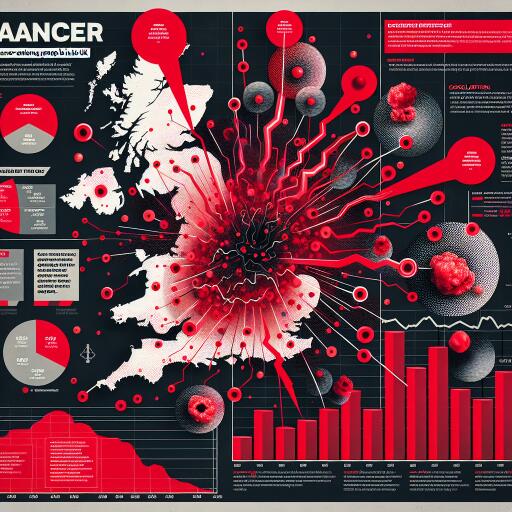
Alarming Rise: The Surge in Cancer Rates Among the Youth in the UK
In a startling revelation, recent studies have highlighted an alarming increase in cancer rates among young individuals in the United Kingdom. This trend, described by experts as ‘explosive’, paints a worrisome picture of the growing health challenges facing the younger demographic. Such data, emanating from meticulous government analysis, demands urgent attention to understand the underlying causes and implement preventative strategies to curb this distressing trajectory.
The investigation into the surge in cancer incidences among the youth has brought to light several potential factors contributing to this trend. Among these, lifestyle changes, environmental factors, and exposure to carcinogenic substances have been identified as significant contributors. The findings underscore the immediate need for a comprehensive review of public health policies and the implementation of more robust cancer prevention and awareness programs targeted at younger populations.
The data, which underscores an increase in various types of cancer diagnoses among individuals under 40, challenges the traditional perception that cancer predominantly affects the older population. This shift suggests that cancer is no longer a disease reserved for later stages of life, emphasizing the need for early detection and education efforts to begin much earlier than previously thought.
Experts suggest that to combat this rising trend, a multi-faceted approach is needed. This includes enhancing public awareness about the importance of healthy lifestyles, the dangers of smoking, excessive alcohol consumption, and exposure to hazardous substances. Additionally, there is a call for more rigorous research into the environmental factors contributing to cancer to inform policy changes that could protect vulnerable populations.
Healthcare systems are also urged to evolve, with increased emphasis on proactive measures such as regular screenings and genetic testing where applicable. Such strategies can play a critical role in identifying cancer at its inception, significantly improving the prospects of successful treatment and survival.
The discussions around these findings are far-reaching, extending beyond the medical community to policymakers, environmentalists, and the general public. It’s clear that addressing this ‘explosive’ rise in cancer rates among the young requires a collective effort and a holistic approach to health care and disease prevention.
In light of these findings, the importance of continued research cannot be overstated. It is through diligent study and analysis that the complex interplay of genetic, environmental, and lifestyle factors will be understood. This knowledge is vital in developing effective strategies to not only treat but, more importantly, prevent cancer in younger individuals.
This concerning trend serves as a call to action for all stakeholders involved in public health and cancer research. The increase in cancer rates among the young is a multifaceted challenge, requiring an equally multifaceted response. With coordinated efforts, it is possible to reverse this trend and pave the way for a healthier future for the coming generations.
In conclusion, the ‘explosive’ increase in cancer rates among the youth in the UK is a pressing public health concern. It necessitates a swift and comprehensive approach to research, healthcare delivery, and policy reform. By prioritizing prevention, early detection, and education, we can aspire to curb this distressing rise and safeguard the well-being of younger populations. In the face of such challenges, it is the collective responsibility of society to respond with urgency and determination.





Leave a Reply